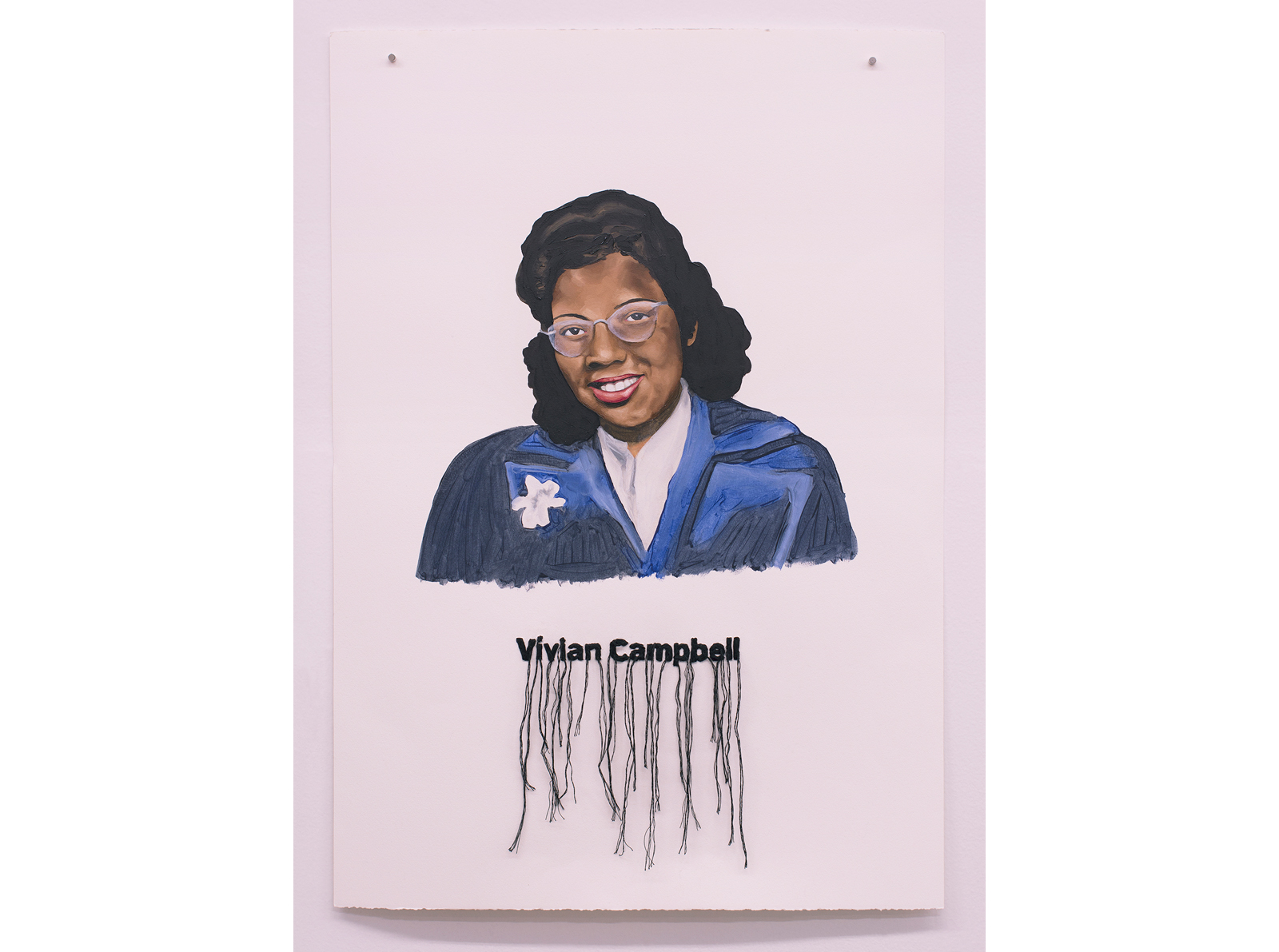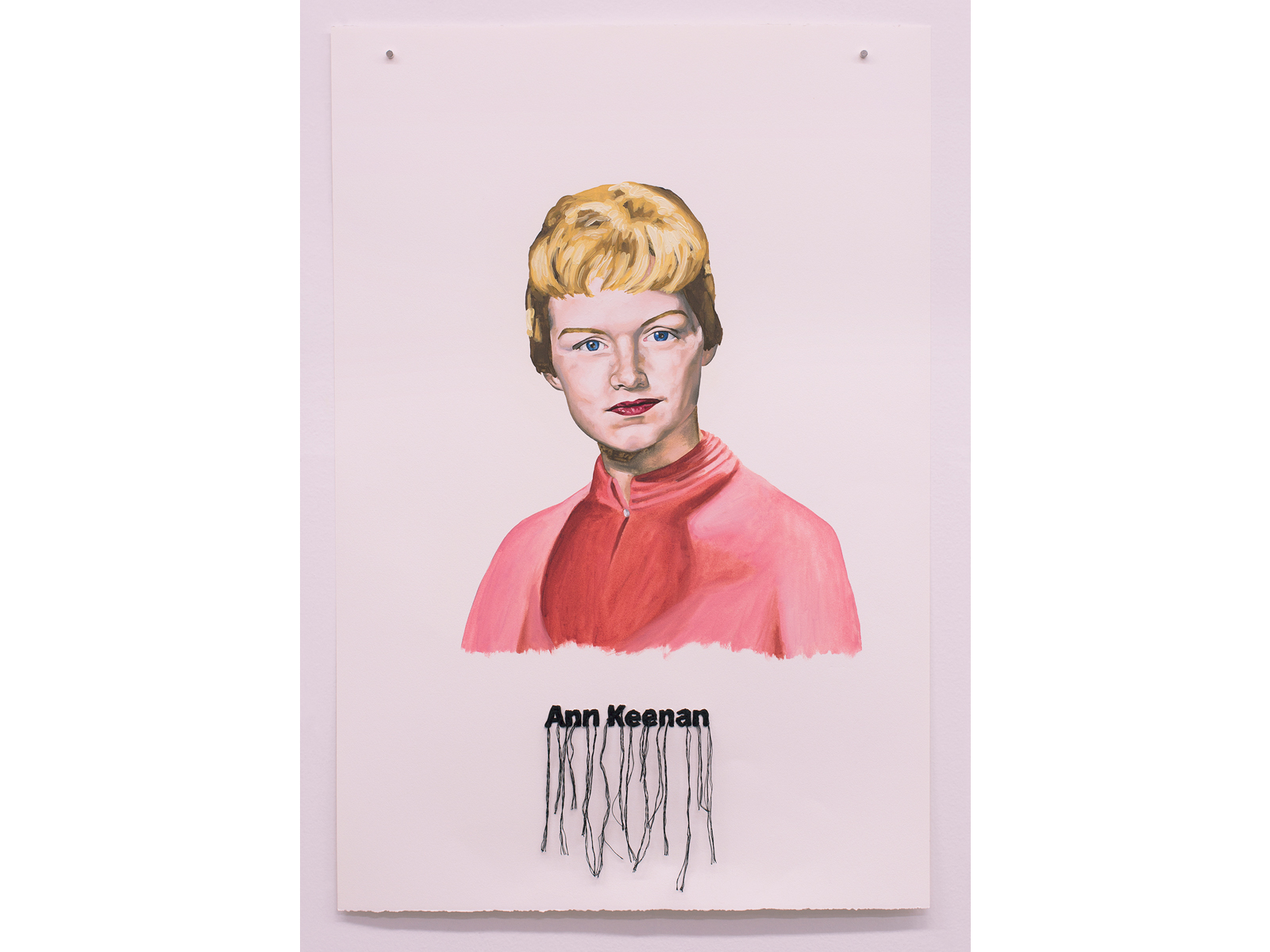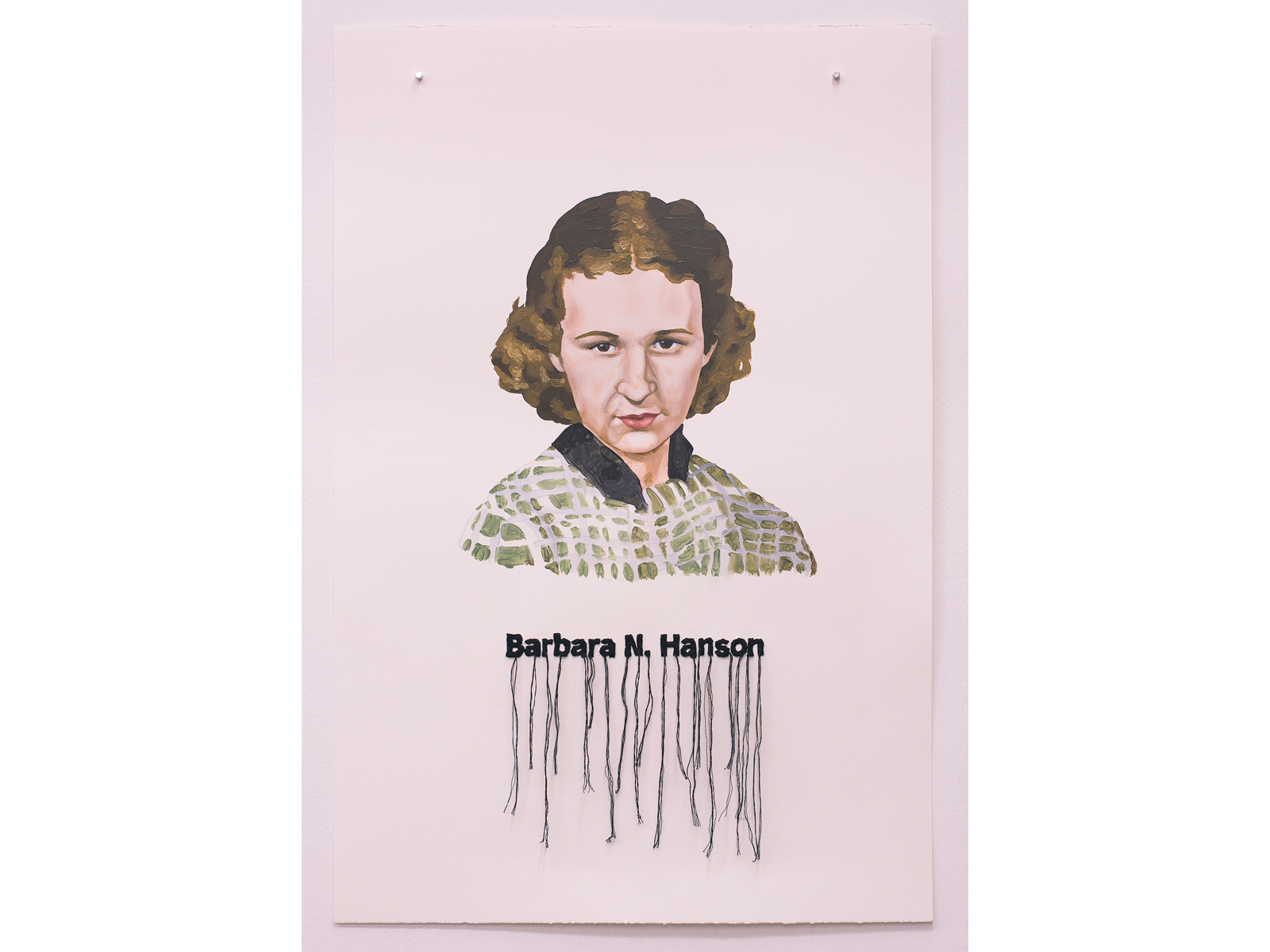The Local newsletter is your free, daily guide to life in Colorado. For locals, by locals.
Just before leaving her home in Long Island, New York, for the last time, 17-year-old Arlene Thompson asked her mother a question: “Mom, would you be really lonely without me around?”
Thompson’s body was found 10 days later in a vacant lot, resting in a shallow grave and covered with trash. She’d bled to death while receiving an abortion from an unlicensed practitioner. It was December 1957. The landmark Supreme Court case Roe v. Wade legalized the procedure nationwide 16 years later.

Thompson’s final known inquiry inspired the title of Aurora artist Daisy Patton’s latest collection of work, Would You Be Lonely Without Me? The series, which debuts at the Art Gym Denver on Thursday, includes 15 portraits, each depicting a young woman who died because she didn’t have access to safe reproductive healthcare.
“The hope for this series is to remind people of the horrors of the ‘bad old days’ and how we are quickly approaching their return, restriction after restriction,” says Patton. “Many living, breathing people died in terrible and preventable ways due to these laws.”
The 1973 passage of Roe v. Wade came with enduring controversy. But separate from the moral clash between pro-life and pro-choice advocates is a statistical fact: The decision heralded a safer era for women facing unwanted pregnancies.
In 1930, abortion was listed as the cause of death for almost 2,700 women, according to the Guttmacher Institute, a research group that backs legalized abortion. Many suspect the number is higher. (Pre-1973 statistics are limited and often unreliable because the procedure was illegal in most states.)
Several peer-reviewed journals highlight a steady decrease in abortion-related deaths after Roe v. Wade. The Journal of the American Medical Association, for example, notes a significant decline between 1973 and 1985 (from 3.3 deaths to 0.4 death per 100,000 procedures). Today, more women die during childbirth than they do ending a pregnancy.
But Patton fears voters have forgotten how deadly the procedure could be before it was legalized. The 2016 election of President Donald Trump strengthened those fears. (His position on abortion has changed several times, but he appears to have settled on the pro-life side when he signed legislation in 2017 giving state and local governments the right to withhold funding from organizations that perform the procedure, like Planned Parenthood.) So she decided to take on a long-percolating project: giving a face to the victims of dangerous, illegal abortions.
Before she put paintbrush to paper, Patton spent months poring over old newspaper clippings to find the women whose stories she wanted to tell. Identifying them was often a challenge—Patton says stigma meant death certificates sometimes blamed women’s death on pneumonia or other ailments. Only the most horrific of deaths, like that of Arlene Thompson, ever reached the headlines. “And of course, the majority of women who were affected by these restrictions were poor women or women of color,” says Patton. “And their stories are often not heard in dominant newspapers. So that required extra digging.”
Even after discovering her subjects, Patton had to track down photos and descriptions of each woman so she could portray them as accurately as possible. So the three days she spent actually painting each 30-inch-by-20-inch portrait with oil on paper felt minimal in comparison. The final touch? Using embroidery thread to stitch each woman’s name at the bottom, purposefully leaving the ends dangling. “The thread lends itself to different interpretations,” she says. “You have the thread of life being cut short, and there’s also a nod to the tools of domestic labor.”
Would You Be Lonely Without Me? feels particularly salient given the recent news of Justice Anthony Kennedy’s impending retirement from the Supreme Court. Many believe President Trump’s current nominee, the conservative judge Brett Kavanaugh, would not support Roe v. Wade. The uncanny timing is not lost on Patton. “It’s very apparent that the Supreme Court is going to shift radically in the next few years. It already has to some degree,” she says. “It’s the instrument that will, if not take down Roe v. Wade, legalize all the restrictions that make [abortion] illegal in the first place.”
In anticipation of possible trouble ahead for pro-choice advocates, the portraits are available for purchase, and 100 percent of their $750 cost will be donated to five reproductive justice organizations: NARAL, Planned Parenthood, SPARK, California Latinas for Reproductive Justice, and Sister Song. Patton says she will continue painting and selling portraits after the current 15 are purchased.
If you go: Would You Be Lonely Without Me? will be on display from July 12 to August 3, with an opening reception on Thursday from 5 to 8 p.m. Patton will give an artist’s talk at the Art Gym on July 25.










